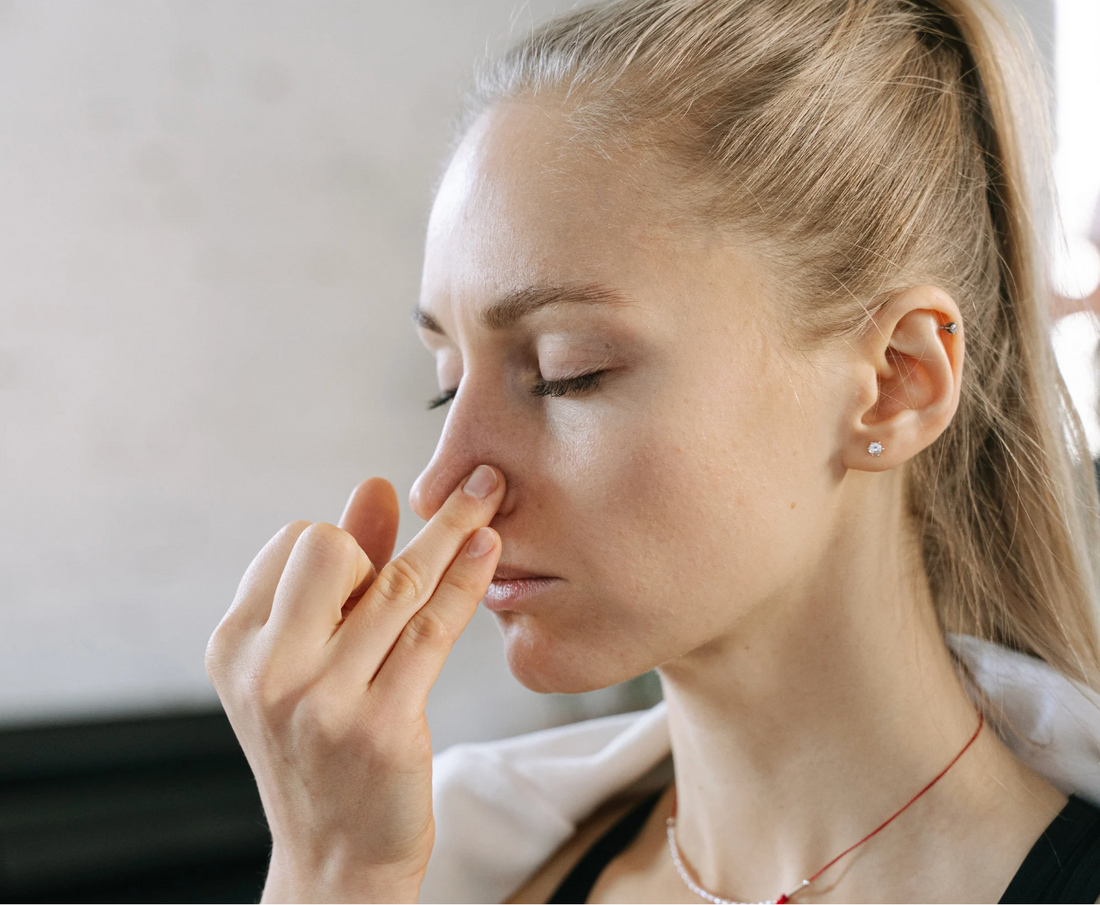
Why You’re Breathing Wrong and How to Fix It
Share
Every day, we take over twenty thousand breaths. Yet for millions, this most basic function quietly works against them. Improper breathing habits often without warning or visible symptoms undermine sleep, focus, energy, and even facial development, all while going unnoticed.
In our modern, screen-dominated lives, shallow breaths and chronic mouth breathing have become the norm. Poor posture, high stress, and air-conditioned, processed environments combine to create what researchers call “dysfunctional breathing.” It doesn’t hurt so it doesn’t demand attention but over weeks and months, it sabotages your body’s capacity to regenerate, rest, and perform.
The biggest shift happens after lights-out. Studies reveal that most adults default to mouth breathing at night, often without realizing it. This habit cuts oxygen uptake, disrupts nitric-oxide production a key molecule for blood flow and immunity and triggers snoring, dry mouth, and restless sleep. Instead of waking refreshed, many of us greet the morning foggy, chalking it up to stress or aging when the real culprit is our breath.
Switching to nasal breathing isn’t merely cosmetic. Inhaling through your nose balances carbon-dioxide levels and stimulates the parasympathetic (rest-and-digest) nervous system to boost cardiovascular health. The nose also filters and humidifies every draft of air, protecting airway tissues and encouraging full diaphragmatic expansion. Even facial structure benefits, since a properly resting tongue guides optimal jaw development and symmetry. By contrast, mouth breathing narrows airways, encourages a recessed chin, and raises the risk of sleep-disordered breathing.
Awareness is the first step but it’s not enough. If you struggle with congestion or nighttime mouth breathing, simple aids can reset your pattern. Nasal dilators gently expand your nostrils from within to open up airflow without force, while medical-grade mouth tape keeps your lips sealed to train your body to breathe through the nose. Used alone or together, these tools reduce snoring, boost oxygenation, and restore truly restorative sleep. Pair them with posture coaching, stress-management techniques, and targeted breathwork, and you’ll notice tangible gains in energy, mental clarity, and long-term well-being.
Breathing isn’t just an automatic reflex—it’s the foundation of health. Often, the journey to feeling better, sleeping deeper, and performing at your peak begins not with a prescription, but with a single, conscious breath through the nose.
